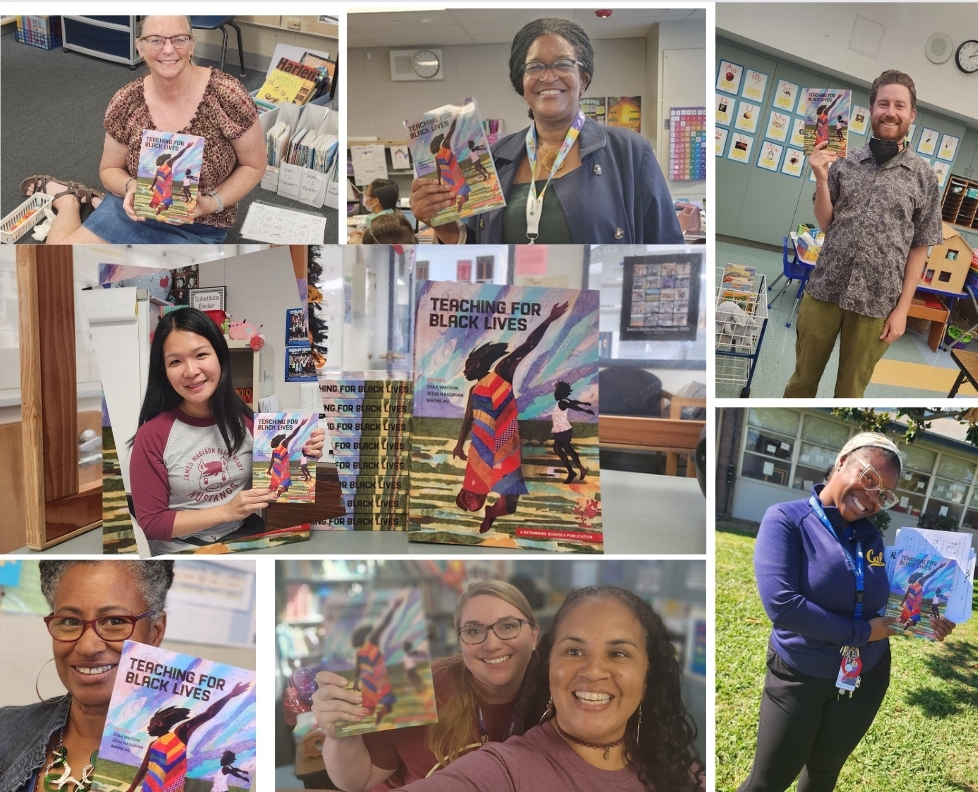
The Zinn Education Project has begun its third year of nurturing communities of antiracist educators by sponsoring 100 Teaching for Black Lives study groups across the United States. This year’s study groups represent 30 U.S. states and two Canadian provinces.
Additionally, 16 groups continue their work from past years. A majority of the participants are teachers but several groups include administrators, counselors, librarians, and support staff.
Meet just a few of the 2022–2023 study groups below.
with knowledge to support and educate their student population in a culturally relevant manner.”
In 2023, they will work in cross-content and mixed-age groups to create curricular artifacts that reflect their engagement with Teaching for Black Lives. Finally, they plan to share out the work created as a means to invite each other to dream new ways to engage in anti racist teaching.

